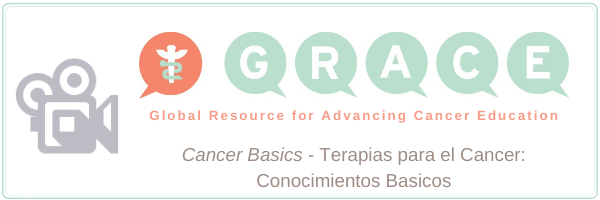Welcome!
Welcome to the new CancerGRACE.org! Explore our fresh look and improved features—take a quick tour to see what’s new.

Dr. Duma is an Assistant Professor and Thoracic Oncologist at @UWcarbone, University of Wisconsin Carbone Cancer Center, and Former Chief Fellow @MayoClinic in Rochester, Minnesota. In addition to her dedication to her patients as a provider, Dr. Duma is committed to her research and advocacy in diversity and inclusion. She was recognized as the 2018 resident of the year by the National Hispanic Medical Association.
Dr. Duma shares cancer basics for the Latino community, and in this video discusses the basics of immunotherapy.
Stay tuned for more great videos!
If you want to join the conversation, please visit our forums! To join the conversation, visit https://cancergrace.org/forum.
Please feel free to offer comments and raise questions in our
discussion forums.
Dr. Singhi's reprise on appropriate treatment, "Right patient, right time, right team".
While Dr. Ryckman described radiation oncology as "the perfect blend of nerd skills and empathy".
I hope any...
My understanding of ADCs is very basic. I plan to study Dr. Rous’ discussion to broaden that understanding.

An antibody–drug conjugate (ADC) works a bit like a Trojan horse. It has three main components:
Bispecifics, or bispecific antibodies, are advanced immunotherapy drugs engineered to have two binding sites, allowing them to latch onto two different targets simultaneously, like a cancer cell and a T-cell, effectively...
The prefix “oligo–” means few. Oligometastatic (at diagnosis) Oligoprogression (during treatment)
There will be a discussion, “Studies in Oligometastatic NSCLC: Current Data and Definitions,” which will focus on what we...
Radiation therapy is primarily a localized treatment, meaning it precisely targets a specific tumor or area of the body, unlike systemic treatments (like chemotherapy) that affect the whole body.
The...

Welcome to the new CancerGRACE.org! Explore our fresh look and improved features—take a quick tour to see what’s new.
A Brief Tornado. I love the analogy Dr. Antonoff gave us to describe her presentation. I felt it earlier too and am looking forward to going back for deeper dive.